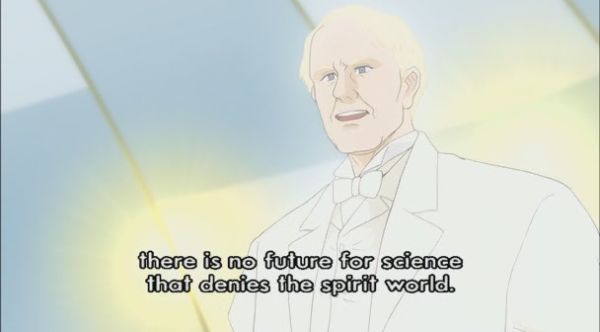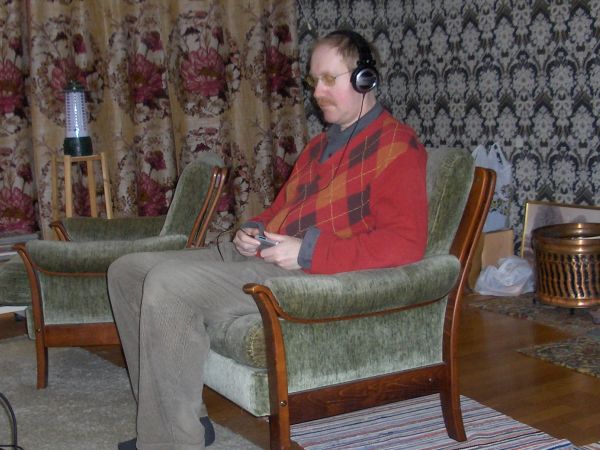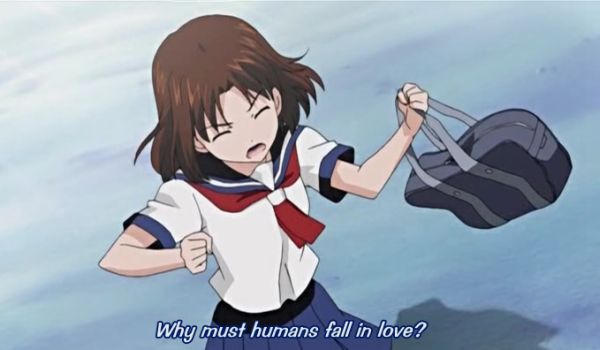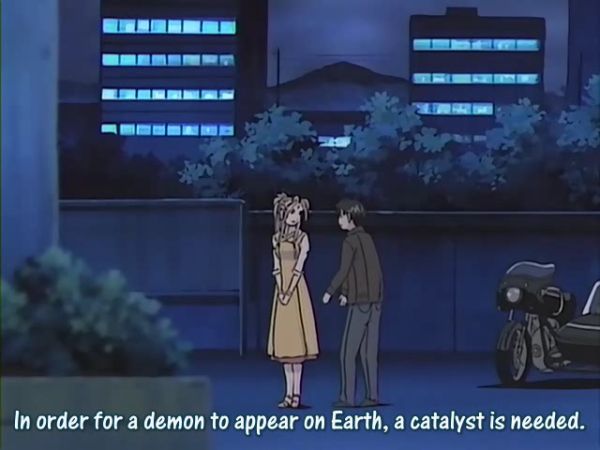The bookshelves used to be flowing over with fantasy books, but lately I have cleared out the fantasy and begin to fill up with books of Truth and timeless wisdom. Now to do the same with my head…
Today’s title comes from an old friend of mine, and I can certainly understand her. After all, we kind of wake up on the outside first, that is to say, the material world. The world inside is more or less completely in shadow unless you are born an introvert, and even then it rarely pays your bills so you need to look outward much of the time.
What do I mean by inside and outside in this case? What happens to us is outside. What we do is also outside. Â But what we decide is inside, and how we react to what happens. If we never witness ourselves, our inner space where thoughts and feelings happen, then we will be taken by surprise by what we do. Â This is how it is with many people. When others do something to them, they do not make a conscious decision on how to react. Â They just do what comes naturally to them. Â Depending on their nature, this may not be too bad. But potentially it could result in tragedy, and for many people it does. Â Even if they never murder anyone, they may still kill their marriage and their friendships without meaning to or even without knowing why. They may ruin their health and their finances, and then wonder why God let bad things happen to good people like them. Â This is what we call an “unreflected life”.
When you reflect on your life, you can start by looking at it from outside, as if seen by a stranger who is neither your friend nor your enemy. If you saw a stranger acting like you do, how would you judge that? Â This is the first step, self-reflection for dummies, and we need to keep that up later as well. Â But eventually you should be able to observe your own thoughts and feelings arise in your inner space. Â Daily meditation will help with this. Â If you are not born an introvert, it will likely take some time – months, probably – before it really takes hold. Â In that period you will simply need to keep repeating your mantra or count to ten or whatever your form of meditation is. Â It will take hold eventually.
Esoteric knowledge requires you to have this space inside, a bubble of time between action and reaction, where you can glimpse yourself. Â This is why parents tell their kids to count to ten before answering those who taunt them. Â In that space, that tiny bubble of “now”, you can catch yourself. Â This is the beginning of esoteric knowledge. Without this, it will never make sense, and you will be confined to the outside of your mind, helplessly watching yourself do things you don’t understand.
This tiny bubble of “now” is what expands over time to become a whole kingdom within, and in this kingdom there have been many travelers through the ages. They left behind notes from their travels, of the things they encountered (or they told others, who wrote it down). Â By reading this, you can be prepared for what you have not yet come to. Â Obviously the map is not the terrain – if all you do is read about others’ travels, you will never arrive where they did. Â But it is still a good preparation. Â When you go on a vacation in the outer world, you do read about the place you are going to, right? Â How much more if you go to a remote place where few have ever been and that is shrouded in myths and legends.
Even so, some mystics are needlessly obscure. Perhaps they feel that their knowledge should only be given to those who are worthy. Â Or perhaps they just don’t have much gift for clarity. Â Or perhaps it often is what the Swedish writer Esaias Tegner says: “The obscurely spoken is the obscurely thought.” Or in simpler translation, murky speech means murky thoughts. Even I, even right now, I am writing more hazily than I wish I could, because I don’t have enough clarity of mind.
This is why I am so impressed when I find someone who can explain such things simply. Â And yes, that includes Ryuho Okawa. I don’t care that he believes he used to be king of Atlantis, as long as he can put into words the timeless wisdom that I almost knew already but had not consciously been able to form into words. Â If believing that you have lived for billions of years is what it takes to hold this kind of insight in your mind until it crystallizes, then so be it.
Rather than just leaving behind words of wisdom, Okawa also patiently explains how he got there in this life. Â It is not like he has just been relaxing on the couch and the voices in his head told him everything. Â He has been studying since his youth, voraciously devouring the words of the high spirits who have lived throughout history, spitting out that which has mistakenly been called “great” literature but did not fit into the grand puzzle. Â His advice is to always be like an iceberg, exposing at most 20% of what you know at any time, preferably much less.
So when I find myself writing something unclear, I realize that I have not understood it to the degree it can be understood. Â I may not have learned enough about it, or I may have learned but not yet lived it long enough for it to settle down inside me and crystallize. Â When wisdom becomes clear as crystal, it shines brilliantly, and just watching it is joy in itself. Â But as the Bible says, the book of prophecy tastes like honey but it hurts in the stomach. Â Digesting words of wisdom means having to say “no” to rash impulses. Â In a way, it is more of the same as growing up. Â As a child we may think that grown-ups can do whatever they will, but when we arrive there we realize that freedom can only live when married to responsibility.
And that, I believe, is why words of wisdom are hard.  Some of them have to become flesh in us before the next level will even start to make sense.  If we stop living wisdom, we will eventually come to a point where we cannot learn more of it in theory either.  In fact, if we never start, we will never come very far. Uhm, that sounds kind  of obvious. But then wisdom is kind of obvious once you’ve been there.










